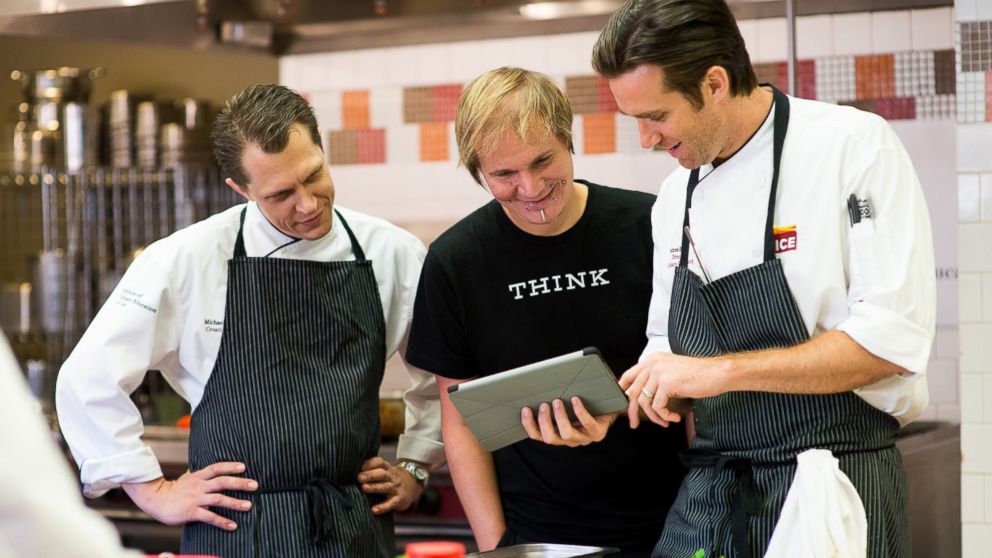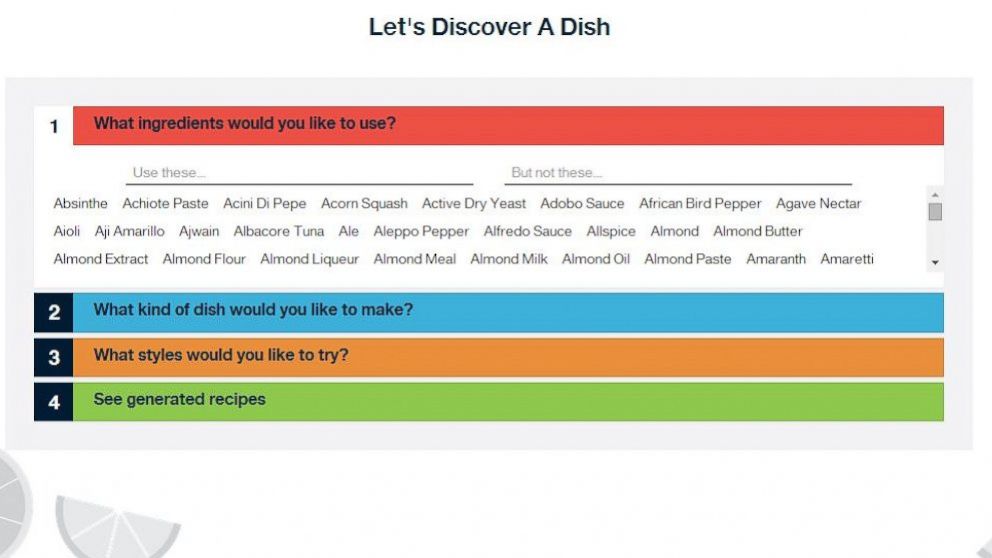Cooking with Chef Watson, the Computer That Won 'Jeopardy'
Home cooks and chefs alike can now tap into Watson for recipe creation.

— -- You may remember Watson, the computer that wowed the world back in 2011 when it won first place in “Jeopardy!” against two humans for a $1 million prize.
Defined by IBM, Watson is a “cognitive technology that processes information more like a human than a computer – by understanding natural language, generating hypotheses based on evidence and learning as it goes.”
Now four years since its big television debut, Watson may no longer be competing in game shows, but nonetheless has been very busy. Doctors are able to identify diseases with greater ease and precision using Watson’s knowledge on every disease ever discovered and what those symptoms are. Pharmaceutical companies utilize Watson for cancer research, since it can process every medical-related article – more than one million a year – to identify trends, highlight areas worth investigating and more. And, perhaps most surprisingly, home cooks and chefs alike can now tap into Watson’s knowledge for recipe creation.
Florian Pinel, IBM’s lead engineer for Chef Watson, utilized the foodpairing method, which is based on the idea in Western cuisine that the more flavor compounds different ingredients share, the more likely they are to taste good together. For example, bacon & cheese and asparagus & butter share many of the same flavor compounds and, as is commonly acknowledged, taste really good together. So, Pinel programmed Watson with that information and paired up with “Bon Appetit” to teach Watson how to craft a recipe.
“When a home cook goes in, they’re asked what ingredient or dish or cuisine they’re interested in, and they’ll get suggestions and recommendations based on ‘Bon Appetit’ recipes,” Pinel told ABC News. “These are new recipes, complete with proportions and steps that have never existed before but are inspired by ‘Bon Appetit.’ Once Watson has created a new combination of ingredients, then it looks for the most similar recipe in our database of existing recipes and uses that as a template to adapt the proportions and recipe steps.”
After years of work, Pinel and his team have gone live with Chef Watson at IBMChefWatson.com where users can try the recipe generator out.

“We have users who need instructions, so it’s actually a challenge that has never been taken before to generate instructions for a product that has never been made, but I think we’re doing pretty well,” Pinel said. “Then you have chefs and more advanced users who really want to see the combinations of ingredients they wouldn’t have thought of and that actually work, and that’s what inspires them and makes the value of Chef Watson to them. Chef Watson has been tremendously inspiring in that domain, and that’s what you see in the cookbook.”
The cookbook “Cognitive Cooking with Chef Watson,” out today, which was created through a partnership between IBM and the Institute of Culinary Education in New York City.



